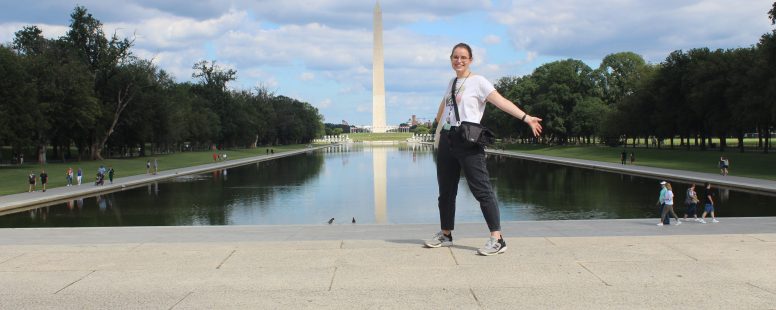Short Report by Victoria Most: High-troughput modeling of TCRpMHC complexes with non-canonical peptides. (July – Oct. 2022)
This summer I had the opportunity to travel to Nashville on a Max-Kade Fellowship to participate in a joined research project between Vanderbilt University, the Vanderbilt Medical Center and Leipzig University. I was fortunate that my stay corresponded with the Summer RosettaCon 22 in the sleeping lady resort in Washington state. This gave me the opportunity to meet other structural biology enthusiasts in my first in person conference since the Covid pandemic and explore Seattle and the surrounding area. Luckily also the Meilerlab retreat gave me the opportunity to go to Florida and get to know my fellow lab members at Vanderbilt.
At Vanderbilt I tried to learn as much about modelling T-cell response as I could. Mentored by Nathanial Bloodworth (Harrison Society a Physician-Scientist Training Program/ Co-advised by Jens Meiler) my research goal was to establish a pipeline to predict immunogenicity for non-canonical peptide antigens. In cooperation we wrote a pipeline for high-throughput modeling of TCRpMHC complexes with non-canonical antigens. I learned how to set up a training dataset for a NN network and am now able to train it for predicting immunogenicity of non-canonical neoepitopes of cancer or inflammatory diseases.
But I did not solely spend my time with research but also explored Nashville and different parts of the US. I broadened my horizon in the Smithsonians in Washington D.C. and took photographs with famous US presidents. In the smoky mountains I enjoyed he vast US wilderness and chanted ‘Rocky Top!’ together with friends from our lab at a football game of the University of Tennessee. I saw killer whales in the far northwest and dolphins in the southeast.

